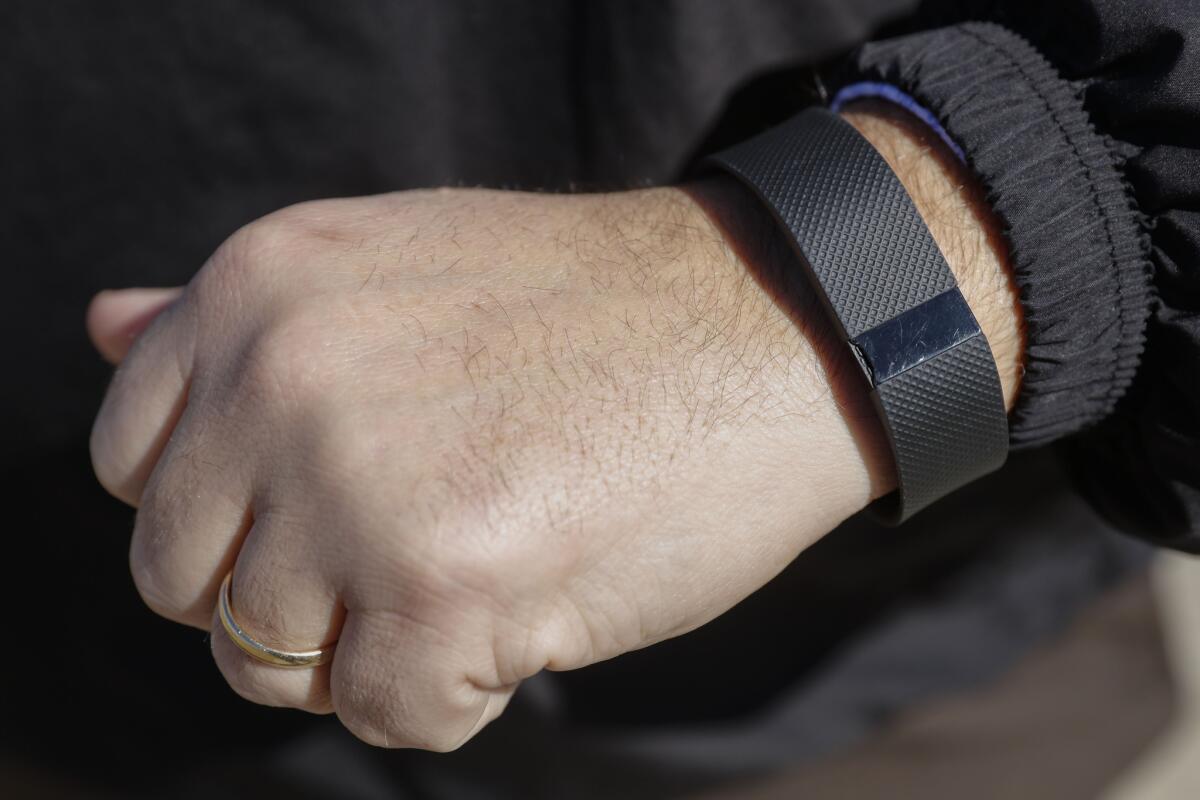Fitbit acquires wearable payment assets from Silicon Valley firm Coin

- Share via
Fitbit Inc. has acquired the wearable payments platform of Silicon Valley financial tech company Coin, setting its sights on the future of payment options.
The maker of wearable fitness trackers said the asset acquisition from Coin will enable Fitbit to develop mobile payment technology that could be integrated into future devices.
Fitbit, based in San Francisco, said there were no plans to use Coin’s technology in its 2016 products. The transaction was completed last week.
See the most-read stories this hour >>
In addition to intellectual property, the deal included “key personnel,” Fitbit said, but it did not name those people.
The acquisition does not include Coin’s smart payments products, such as Coin 2.0, a device about the size of a single credit card that can consolidate the information of the owner’s multiple credit cards, loyalty cards and gift cards and be used in their place.
Coin, founded in 2012, said that it no longer will sell its line of smart payments products and that the Coin device will continue to work until its battery runs out of juice.
Fitbit Chief Executive James Park said in a statement that the inclusion of Coin’s payments technology will further his company’s strategy of making Fitbit products an “indispensable part of people’s lives.”
By attempting to add payments to its wearable devices, Fitbit follows the path of competitor Jawbone, which last year began facilitating card-less payments via American Express.
Though Fitbit devices lag behind the general utility of wearables such as the Apple Watch, the company has expanded its services to include calls, texts and calendar notifications with its new smart devices such as the Fitbit Blaze and Fitbit Alta.
“Fitbit’s strategy here clearly is to choose the functionality applications that people actually use and incorporate that into their devices,” said Joe Wittine, equity research analyst at Longbow Research. “Mobile payments is clearly what’s next.”
MORE
Here’s what Bill Gates says you should read this summer
Does Gap have an identity problem? Why the retailer’s sales keep dropping
Fed likely to raise interest rates in June if economy keeps improving, minutes show
For more business news, follow me @smasunaga
More to Read
Inside the business of entertainment
The Wide Shot brings you news, analysis and insights on everything from streaming wars to production — and what it all means for the future.
You may occasionally receive promotional content from the Los Angeles Times.











